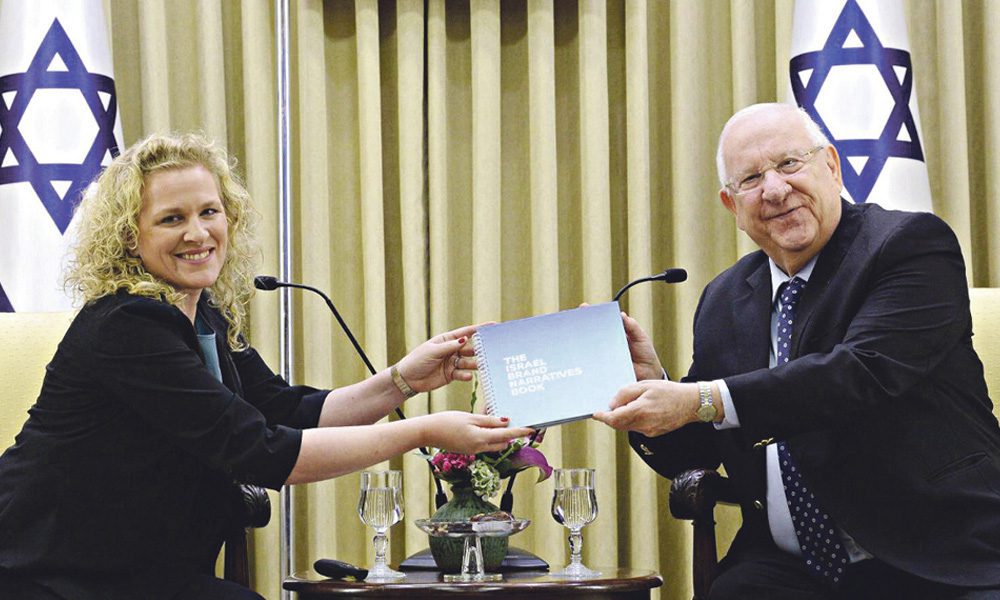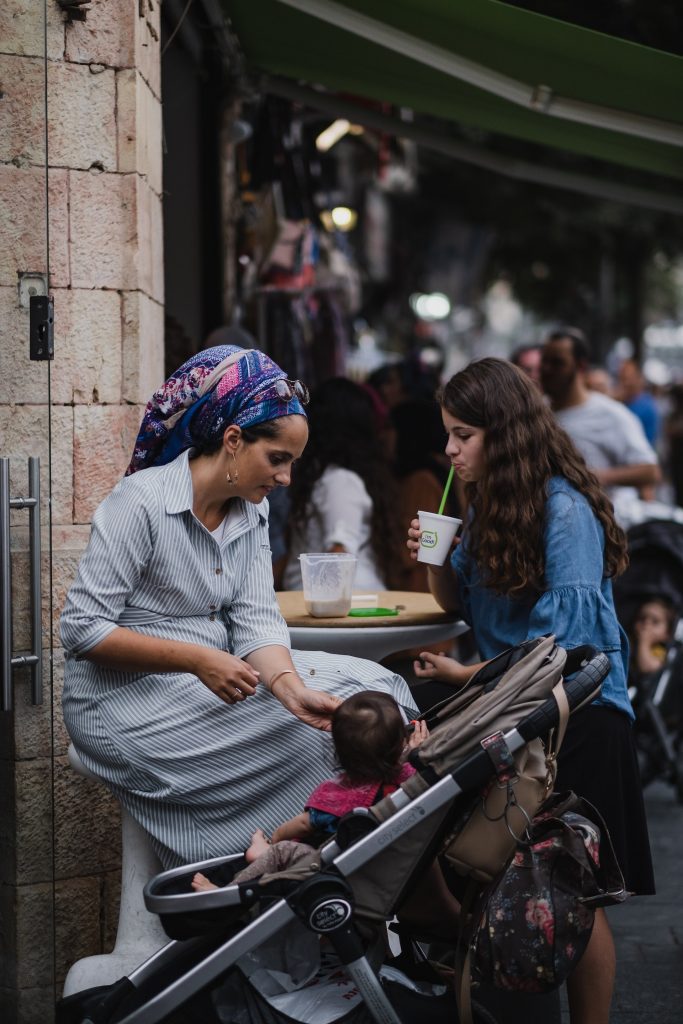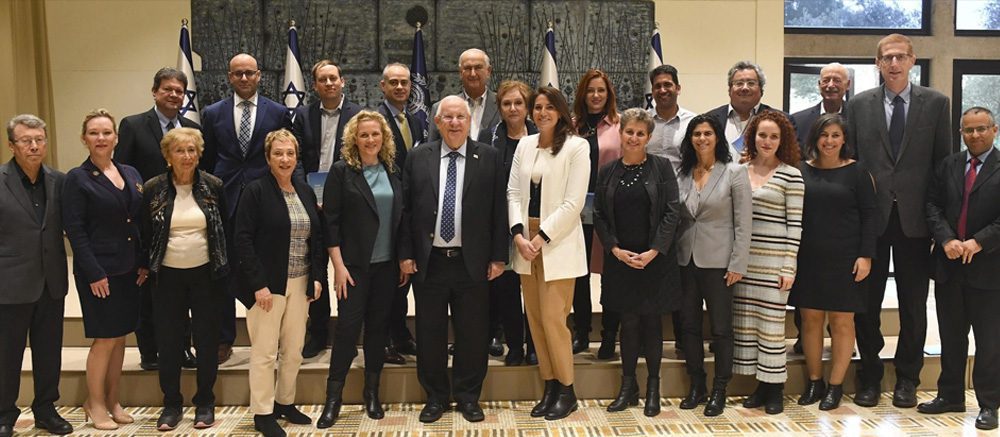A modern Nation with History (Background)
Located in the Middle East and on the Mediterranean coast, Israel borders Syria, Lebanon, Jordan and Egypt. This small Country presents a relatively diverse topography, consisting of a long coastal plain with highlands to the north and desert to the south. As a result of it, the Country faces a very distinct climates over a year: a very cold and rainy winter between October and April and a very dry and hot summer between May and September.
Although Israel presents high diversity in flora and fauna, the rural population amounts only to less than 10% of the Country’s population, with the vast majority, both Jewish and Arab, living in urban areas, as it is where the economy, industry and services has been growing.
However, Israel’s main feature is that it is the only modern Jewish nation in the world, with the population of more than 8 million, with the majority being Jewish.
It should be stressed, though, that the region within Israel’s borders has a long and rich history dating back to pre-biblical times. The little that has been known about Israel’s ancient history comes from the Hebrew Bible, which recognizes Abraham as the father of Islam and Judaism. More importantly, the word Israel originates from his grandson Jacob, who, according to the Bible, was renamed “Israel” by the Hebrew God.
During the twentieth century there were numerous disputes over the territory in the region following the declaration of Israel’s independence from Britain. The plan to divide Palestine into a Jewish and Arab state marked the commencement of the Israeli-Arab conflict, however, Israel managed to sign peace treaties with several neighboring Arabic states.
From ignorance/lack of knowledge to strategy (Challenge)

Despite its history, there seems to be a considerable lack of knowledge about Israel. Only few are able to name Israel’s attributes and what the Country has and does best. It is something particularly noticeable among the youngest generations.
“I knew that Israel, the Country I know well, where I live and that I love, was not perceived around the world in a proper way. Everyone just wants to talk about the Israeli-Palestinian conflict, and although it is an important issue, no one seemed to be talking enough about who we are instead of saying who we are not” says Joanna Landau, the CEO and founder of Vibe Israel.
The global ignorance of this diverse society with its rich history is the reason why Vibe Israel, a non-profit organization created to work on Israel’s image, contacted Bloom Consulting to develop a Country Brand strategy. This initiative has become a challenge for all the entities involved in the project as it involves an independent structure management of the largest asset in the Country: its brand!
The goal: to find the common ground that represents the Country.
Bringing the Israel Country Brand to Life (Strategy)
To commence with, it was necessary to analyze Israel’s overall reputation as well as to define its benchmark and priority markets. Bloom Consulting followed the same methodology as always, dividing the process into three phases. What should be strongly emphasized at this point, is that Vibe Israel is not a governmental institution, yet, it put forward a brilliant initiative, thus, commencing a new trend in Place Branding – Country Brand management taken care of by independent institutions.
The first phase of the process involved a thorough analysis of the Country’s current situation and understanding the perceptions through research conducted in twelve target markets around the world, in order to assess Israel’s Country Brand performance in the real and digital worlds.
Basing on surveys and interviews, we concluded that in terms of the Country’s visibility in the world, the positive perception has not yet been generated, however, it would frequently change after having visited the Country. Visitors claim that they did not experience what the media usually convey in relation to Israel. In fact, tourism and willingness to visit a Country are always good indicators of how people feel about the place.
According to the above-mentioned studies, 64% of gathered insight was associated with non-conflict aspects, even amongst people who had never been to the Country. José Filipe Torres, the Bloom Consulting CEO who was directly involved in the Country Brand strategy creation project, adds: “If we removed the conflict, the perception would be that of religion!”.
As one of the Israeli stakeholders said in one of the interviews, “Israel is respected but not loved.” This is precisely the issue that needs to change and only a well-structured Country Brand strategy can do that.

After conducting in-depth research basing on various quantitative and qualitative data sets, the target audience’s perceptions were explored: Millennials or Generation Y (born in the early 1980s) and Generation Z (born approximately between 1995 and 2010).
Following the research findings and recommendations, in the second phase of the process, Bloom Consulting, in partnership with Vibe Israel, organized several innovation workshops in Tel Aviv and New York. Together with all the involved stakeholders, using a particular methodology aiming to decide what the Country actually represents, we defined the Central Idea that would help to change the Country Brand.

The Central Idea – the sentiment that a Country Brand desires to convey through a secret, unspoken word, was thus further developed by Bloom Consulting in brand behaviors, narratives and examples that illustrate the spirit of the Israeli people.
The four behaviors that represent best the Israeli culture that are present in the country’s culture and mentality of its people are as follows: Celebrating Life, Living Together, Getting Things Done, and Moving Forward. Both Central Idea and behaviors are now aligned with all actions, measures and policies of Israel’s Country Brand.

The first behavior is Celebrating Life. This behavior reflects in valuing life, living it to the fullest, and showing eagerness to keep improving it. The Israeli people consider themselves happy and spontaneous, and as such, not taking themselves very seriously.
Their motto is to be witty, vibrant, spontaneous, open-minded, optimistic, positive and cheerful. In fact, in Hebrew “Cheers” (in Hebrew: L’chaim, or לְחַיַיִּים) translates directly as “To life!”.
Among the examples demonstrating this attitude in practice, Israel’s 11th position in the 2018 UN World Happiness Report should be mentioned. Moreover, it hosts several international life-saving initiatives such as Save a Child’s Heart, Israeli Flying Aid and MASHAV, the government’s official international aid program. Furthermore, Israeli people cultivate family traditions and bonds at weekly Friday dinner parties. Last but not least, the Country offers to its people the lively nightlife offering a great diversity of music.

Another feature of Israeli culture is the importance of Living Together. Israel represents and consists of various cultural backgrounds, colors, traditions and religions. Its history and future are fueled by cultural diversity as well as a common destiny. It is a working contrast. It comes down to being multicultural, having a sense of community and sharing, about being progressive, warm, colorful and caring.
This concept is well illustrated by a statement from its Brand Book: “Everything that happens in here is the experience; receiving people from 170 Countries who do not speak the same language and do not have the mindset in common, and connect them all for one reason – to create something from scratch”.
In order to better understand the issue, let us look at the numbers. Israel is the nation-state for the Jewish people and as such it comprises of over 70 different cultures of origin, with 25% of Israelis not being Jewish, but representing Christians, Muslims, Baha’i, Druze, etc.
Whilst Israel is often referred to as the Holy Land, only 32% of Israeli Jews and 52% of non-Jews define themselves as religious. In addition, the Tel Aviv Gay Pride Parade is one of the largest annual LGBTQ + gatherings in the world.
Finally, this melting pot of cultures is particularly present in Israeli’s gastronomy, where the old and the new, oriental and occidental, traditional and innovative blend.

It is crucial to be innovative, energetic, dynamic, creative, persistent, efficient and capable of problem solving. Getting Things Done. In other words, “Most Israelites intuitively believe they have the ability and talent to do something that will affect the whole world. Even when they are told they are wrong, they will keep trying until something happens” (Brand Book).
For example, the Hebrew word ‘Chutzpah’ (חוצפה) means audacity and is considered an essential feature to get things done – Israeli people are encouraged to challenge the conventional. They do not see scarcity as a problem, rather as a challenge.
To illustrate the latter, let us say that Israel has one of the best water recycling systems in the world that allowed it to overcome the problem of droughts and other water related issues. Israel is also a place that promotes many social initiatives involving community input, such as Tikun Olam Makers – an initiative that encourages communities to come together and create affordable everyday solutions for people with disabilities. Israel also hosts many networking events and gatherings.

Finally, the desired behavior of the project Moving Forward. Despite being thousands of years old, Israel is very good at predicting and adapting to new trends and behaviors. It is all about thinking outside the box and entrepreneurship – Israel is “a laboratory for experimentation”. The latter behavior is reinforced by the following objectives: risk taking, pioneering, early adoption, being an entrepreneur and resilience.
It is worth pointing out that Israel has one of the largest concentrations of multinational research and development departments in the world and encourages the adaptation of technologies from one field to another. An excellent example illustrating it is Israel’s performance at FashTech – a mix of technology and fashion. Another modern trend observed in Israel is indicated by the largest number of vegans per capita in the world.
Another example of how entrepreneurial and progressive Israel is, are the special facilities referred to as the “junk playgrounds”. These are playgrounds full of abandoned materials and objects (junk) where children can get creative, with total freedom to create whatever they wish. There are no rules imposed by adults, concurrently the approach towards responsibility is rather unconventional (they are more attentive than in traditional playgrounds). Children can use different tools such as saws, nails or hammers in order to deconstruct or reconstruct whatever they want, with the help of their educators, however, the children are the ones who set up the tasks!
Having the Central Idea and its expected behaviors identified, we move on to the third phase: planning. This step involves brand activation, for which more than twenty projects, actions, activities and policies have been created, all aligned with the strategy.
“Policies are very important in building up a reputation and perception, as well as Digital Identity and stakeholders’ engagement”, says Malcolm Allan, the president of Bloom Consulting, also responsible for the Israel Country Brand project. “The consistency, coherence and resilience of these dimensions, together with marketing (the last element in Place Branding), is what builds the Central Idea and its implementation”, he concludes.

One of the key projects within the strategy is the Vibe Israel Academy, an educational platform that aims to provide Israeli stakeholders with storytelling tools and techniques, allowing everyone to speak with one voice about Israel and sharing the common idea.
The word is spreading (Results)

Bloom Consulting together with Vibe Israel and Israeli stakeholders have designed 22 projects and initiatives for the strategy of this new Country Brand. It is incredible that this initiative occurred as a result of the decision of a private, non-profit, non-governmentally funded organization that decided to take action in the absence of a strategy for their Country.
As Joanna Landau recalls: “I have met many people like me who have been trying to do something similar, who felt that something should happen, that their governments were not doing it but they wanted to do it themselves.” She continues: “We have been doing it for ten years now, yet we are still at the beginning of the journey, it is a project of passion, there is no other way of doing it.”
The CEO of Vibe Israel knew since the beginning that she would get many refusals, from investment through partnerships to collaboration, but she never gave up, embracing the whole agility and enthusiasm that her organization brings her, and thought at national level.
She says that “doing nothing was simply not an option” and the truth is that although the project is still ongoing and thus it is too early to draw the conclusions and predict the final results, we already see the evolution of the Country Brand.
Since 2013, Israel has been gradually improving on the Bloom Consulting Country Brand Ranking©. In terms of Tourism, Israel’s Country Brand has improved from 16th place in the Asian continent to 13th position in the 2019/2020 edition, upgrading its CBS Rating to the second-best category (AA).
In terms of Trade, Israel has had a sustainable performance in the table of the most attractive Country Brands for Foreign Direct Investment (FDI), currently being among the Top 10 brands in Asia, thanks to a positive performance of various ranking variables.
When it comes to the Digital Country Index © 2017, Israel is the 34th country in the world that generates the most active search engine searches, simultaneously taking the 10th position among the Asian Nations. In terms of exports Israel is at 26th position and ranks among the Top 25 globally as the most prominent Countries.
This evolution proves that the path currently being followed by Israel is the right one, with success written into the future of this new Country Brand.
By continually exposing and emphasizing the most positive traits of Israel, a happy and proactive Nation, the word will spread throughout the world and its reputation will be established. As a result, its rich culture, people, skills and achievements will be the first topics the world will think of when mentioning Israel.
Learn more about Israel’s Case Study soon at the Bloom Consulting website
“We talked to a number of companies, we were looking for a consultant with whom it was fun and enjoyable to work with, who was available, who was there when we needed it, who would help us not only with research and strategy, which most do, but that also would help us with the implementation and Bloom Consulting was the only one able to put it all together. ”
Joanna Landau, Founder & CEO, Vibe Israel
Published on 26.02.2020.











